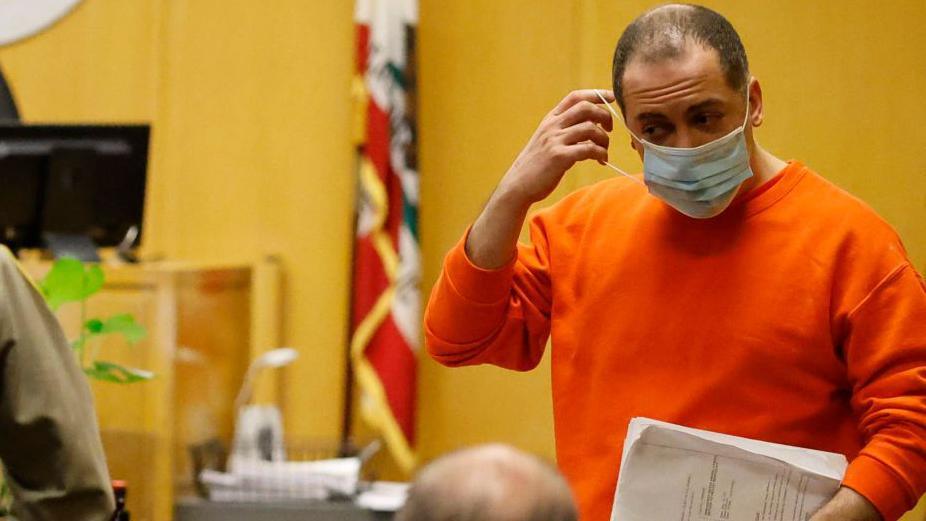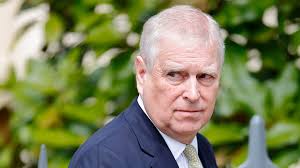News
Tech Entrepreneur Convicted in Cash App Founder Bob Lee’s Stabbing Death

A San Francisco jury has found tech entrepreneur Nima Momeni guilty of second-degree murder in the fatal stabbing of Bob Lee, the founder of mobile payment service Cash App. Momeni, 40, now faces a potential sentence of 15 years to life in prison.
The verdict comes after seven days of deliberation and a six-week trial that revealed details of a drug-fueled evening on 4 April 2023, when Lee, 43, was fatally stabbed in San Francisco’s Rincon Hill neighborhood. Authorities found Lee unconscious with two stab wounds to his chest, and he later died in hospital.
Prosecutors argued that Momeni attacked Lee using a kitchen paring knife, angered by Lee’s introduction of Momeni’s sister, Khazar Momeni, to a man who reportedly gave her GHB—a drug commonly associated with sexual assault.
The defence countered with claims of self-defence, stating that a dispute escalated after Lee allegedly lunged at Momeni with a knife following a “bad joke” about Lee’s family. However, prosecutors questioned why Momeni never reported an attack to police and argued that the defendant’s account lacked credibility.
Autopsy results showed Lee had alcohol, ketamine, and cocaine in his system, which defence attorneys cited as evidence of behavior they described as erratic and aggressive.
Following the conviction, Lee’s brother, Oliver Lee, expressed relief:
“We’re happy that Nima Momeni won’t be on the streets and no longer has the opportunity to harm anyone else in this world.”
Meanwhile, Momeni’s mother, Mahnaz Tayarani, criticized the verdict and pledged an appeal:
“I know my son… This is not a fair trial. We are victims of drug abuse.”
The high-profile killing of Bob Lee sparked widespread concern over safety in San Francisco, with prominent tech figures, including Elon Musk, highlighting fears of rising crime in the Bay Area.
Though Momeni was found guilty of second-degree murder—which does not require premeditation—he avoided a conviction on the more serious charge of first-degree murder.
News
Louvre Director Steps Down Following Jewel Heist and Security Review

The director of the Louvre Museum, Laurence des Cars, has resigned months after a dramatic theft involving France’s historic crown jewels.
Her resignation was submitted to President Emmanuel Macron, who reportedly described the move as an act of responsibility amid ongoing scrutiny of the museum’s security systems.
The theft occurred on the morning of 19 October last year, when intruders used a stolen vehicle-mounted mechanical lift to access the Galerie d’Apollon via a balcony overlooking the River Seine.
Authorities have arrested four main suspects in connection with the incident. However, the eight stolen pieces — valued at approximately €88m — remain missing.
Among the items taken was a diamond and emerald necklace once gifted by Napoleon Bonaparte to his wife. During their escape, the thieves dropped a 19th-century diamond-studded crown belonging to Empress Eugénie, causing damage. The museum has since released images showing the crown to be nearly intact and potentially restorable.
The Louvre, which attracts more than 8.7 million visitors annually and houses masterpieces such as Leonardo da Vinci’s Mona Lisa, has faced increasing attention over its infrastructure.
Shortly after the theft, des Cars acknowledged that the museum’s external CCTV system was outdated. Notably, the only camera monitoring the exterior wall breached during the break-in was not directed toward the balcony used by the suspects.
Security upgrades had been planned, including a proposal to double surveillance coverage, but funding constraints posed challenges for implementation.
A parliamentary inquiry is now examining the circumstances that allowed the theft to occur. A preliminary report has pointed to systemic weaknesses in security arrangements.
In recent weeks, the museum has also confronted additional operational pressures, including a suspected ticket fraud scheme and a water leak — issues that have intensified calls for institutional reform.
News
Trump’s Global Tariff Rollout Begins at 10% Amid Policy Adjustments

New global tariffs introduced by US President Donald Trump have officially taken effect at a rate of 10%, lower than the higher levels previously indicated.
Following a ruling by the US Supreme Court that blocked several of his broader import tax measures, Trump initially announced plans for a 10% global tariff before later signalling an increase to 15%.
However, official documentation confirms that the tariffs were implemented at the 10% rate from Tuesday, with no formal directive yet issued to raise them further. The White House is reportedly working on updating the rate to reflect the proposed 15%, though no timeline has been confirmed.
The move follows Friday’s executive order introducing the temporary tariff under Section 122 of the 1974 Trade Act. This provision allows the president to impose import duties for up to 150 days without requiring approval from Congress.
The administration stated the measure aims to address international payment imbalances and strengthen trade conditions for American workers, farmers, and manufacturers.
Trump has consistently argued that tariffs are essential to narrowing the US trade deficit — the gap between imports and exports. Despite these efforts, the deficit widened by 2.1% last year, reaching approximately $1.2 trillion.
The ruling from the Supreme Court also centred on the president’s use of the International Emergency Economic Powers Act (IEEPA), which had previously enabled the administration to collect at least $130bn in tariffs.
Legal and business responses are now emerging. Logistics giant FedEx has filed a lawsuit seeking a full refund of import taxes paid under IEEPA, while advocacy group We Pay The Tariffs says it represents more than 900 American companies requesting swift reimbursement.
While some analysts warn that shifting tariff policies could heighten global trade tensions, administration officials have indicated that the measures are designed to recalibrate trade relationships in a way that supports domestic economic priorities.
News
British Tourist Among 19 Victims in Tragic Nepal Bus Crash

A 24-year-old British national is among 19 people who lost their lives following a devastating bus accident in Nepal, authorities have confirmed.
The tourist bus was en route to Kathmandu from Pokhara when it lost control and plunged approximately 200 metres down a steep slope before crashing onto the banks of the Trishuli River in Dhading district early Monday morning.
A total of 44 people, including the driver, were on board at the time of the incident. While 19 people died, 25 others sustained injuries and were transported to hospitals in Kathmandu for treatment. Children were reported to be among the passengers.
Nepalese authorities identified the British victim as Stewart Dominic Ethan, although his identity has yet to be formally confirmed by the UK Foreign Office, which said it is providing support to the family affected by the tragedy.
Rescue operations involved multiple emergency teams, including police, military personnel, and specialist divers. According to police spokesperson Abinarayan Kafle, 17 victims died at the scene, while two others succumbed to injuries later in hospital.
Officials also indicated that a Chinese citizen may be among the dead, though this has not been fully confirmed. Among the injured are nationals from China and New Zealand.
Authorities have launched an investigation to determine the cause of the crash.
Road accidents remain a significant challenge in Nepal due to difficult terrain, narrow mountain routes, and road conditions. A similar tragedy occurred in 2024 when a bus travelling between Pokhara and Kathmandu fell into the Marsyangdi River in Tanahun district, resulting in at least 14 fatalities.
Despite such risks, Nepal continues to attract visitors from around the world, particularly adventurers drawn to the Himalaya, home to some of the highest peaks globally, including Mount Everest. Tourism, especially mountaineering, remains an important contributor to the nation’s economy, generating significant revenue each year through climbing permits.
-

 News1 week ago
News1 week agoPolice Review Private Flights at Stansted Following Epstein File Revelations
-

 Entertainment1 week ago
Entertainment1 week agoTech-Inspired Musician Look Mum No Computer to Represent UK at Eurovision
-

 News1 week ago
News1 week agoDNA Test Yields No Match in Search for Missing Nancy Guthrie
-

 News1 week ago
News1 week agoUkraine’s ex-energy minister detained while attempting to leave country
-

 News1 week ago
News1 week agoRussia killed opposition leader Alexei Navalny using dart frog toxin, UK says
-

 News1 week ago
News1 week agoTributes Pour In as Civil Rights Icon Jesse Jackson Dies at 84
-

 General6 days ago
General6 days agoSouth Korea’s ex-president jailed for life over martial law attempt
-

 News6 days ago
News6 days agoAndrew arrested on suspicion of misconduct in public office


















